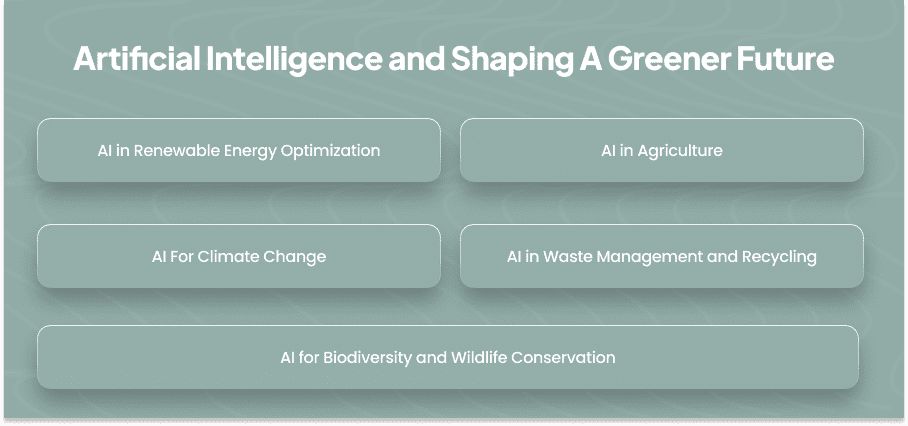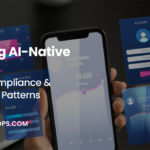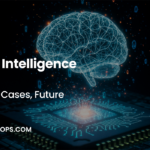Artificial Intelligence has revamped many industries and played a critical role in their success. Whether it is information technology, healthcare, or big businesses, AI left its impression and still progressing.
With so many developments, still some global challenges need attention. Those challenges include climate change, environmental degradation, and the draining of natural resources. Organizations only focus on implementing AI to earn billions of dollars and automate business processes.
However, AI is capable enough to tackle environmental issues by optimizing resources, reducing waste, and assisting industries in adopting greener practices.
In this article, CodingCops will shed light on the concept of sustainability, and the role of AI in shaping a greener future by bringing innovations in different fields of life.
Sustainability – A Brief Introduction

Sustainability in the usage of the available resources is an organizational practice through which a person can meet the current demands and at the same time does not jeopardize the future generation. In simple terms, sustainability represents a plan that looks at the economy and social needs, while also considering the environment.
So, what does sustainability want to achieve? The ultimate goal is to prevent human beings from activities that negatively impact the planet. This prevention will guide the ecosystem to remain healthy and preserve natural resources, and biodiversity protection.
AI and Its Support for Sustainability
AI possesses a huge potential to support sustainability by promoting better use of resources, reducing waste, and enhancing efficiency. All this can be done through AI technologies.
For instance, to improve energy efficiency, AI can bring in smart grids and predict the requirement of energy. This strategy reduces the carbon footprint.
If we shed light on agriculture, AI-powered agricultural technologies can maximize crop yields while minimizing water and fertilizer consumption.
These are just two examples where AI plays its role. If you go a little further, you will find hundreds of more examples where AI is playing its role in promoting a sustainable environment.
Artificial Intelligence and Shaping A Greener Future

- AI in Renewable Energy Optimization
The first major application area of AI in sustainability is the optimization of renewable energy systems. AI models can forecast the energy consumption profile and vary the generation of conventional energy like solar or wind energy, for conserving the resources.
For instance, AI can predict weather conditions, and as a result, solar or wind power stations can adjust energy production depending on expected levels of sunlight or wind speed.
Furthermore, there are ways in which AI makes its impact including the the improvement of the Smart grid which manages supply and demand for power.
These smart energy systems apply AI to minimize uneven energy distribution and add renewable energy to the grid in real time. This reduces the dependency on fossil fuels, leading to the production more cleaner energy.
- AI in Agriculture
It’s a fact that traditional agricultural strategies are contributors to environmental degradation. For that reason, AI is assisting in promoting greener farming strategies.
The AI-powered precision agriculture tools enable farmers to monitor crops, check the pH level of the soil, and utilize fertilizers efficiently.
Applying AI enhances resource efficiency, and food production, and lowers environmental impacts on agriculture.
AI is also improving crop monitoring. With AI sensors incorporated in drones, farmers may use the technology to carry out field scans for diseases or pests, enabling farmers to combat the problem before it becomes severe.
- AI For Climate Change
Climate change is the greatest environmental problem this world is facing. However, AI is playing its role in mitigating the risks by incorporating AI-powered climate models.
These models are capable of forecasting the upcoming climate changes based on environmental data. This strategy allows the government and concerned institutions to plan by implementing effective strategies.
- AI in Waste Management and Recycling
Another area where AI is proving remarkably useful is waste management. The AI-powered recycling system is developed with the help of advanced algorithms that help in sorting and managing waste effectively. This eliminates the amount of landfills with waste and promotes a sustainable environment.
Moreover, AI-based models also work to analyze the previous trends of waste production. This allows the relevant organizations to plan for efficient waste disposal and recycling processes.
- AI for Biodiversity and Wildlife Conservation
Sustainability includes efforts to maintain the biological variety in the world and protect endangered species, which AI can clearly help. Intelligent systems include; the use of sensors, cameras, and drones in tracking the wild animals, observing their habitat, and empowering the systems to recognize any acts of cruelty such as poaching.
Recognition of the huge volume of environmental data via AI means that conservationists get a much better understanding of ecosystems and species. It assists in reaching appropriate decisions regarding the conservation of habitat and species, as well as regarding the overall management of ecosystems.
Conclusion
A fact that everyone is well aware of is that the world is facing extreme environmental challenges. There is no way except to address these challenges and promote a sustainable environment. AI’s role in promoting sustainability is unparalleled; whether by optimizing renewable energy systems, waste management, or bringing technological advancements in the agriculture sector.
Another thing to understand is, that AI alone can’t handle all this chaos. Humans also have to take a step to make environmentally friendly policies that promote sustainability. If human effort and AI technology are combined, we can hope to achieve better results and preserve our planet for future generations.




